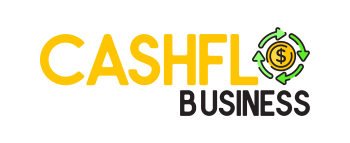
In the ever-evolving world of business, the value of a skilled business coach cannot be overstated. Business coaching offers valuable insights, guidance, and mentorship that can significantly impact your success. However, not all business coaches are created equal, and finding the right one for your unique needs is a crucial decision. Here, we explore the key factors to consider when selecting the ideal business coach to help you achieve your goals.
1. Expertise and Industry Knowledge
One of the first and most critical factors to consider when choosing a business coach is their level of expertise and industry knowledge. A coach with a deep understanding of your industry is more likely to provide relevant insights and strategies. They should have a track record of success in their field, and their experience can serve as a valuable resource in navigating the challenges and opportunities specific to your business.
Before making a selection, research potential coaches, examine their professional backgrounds, and inquire about their industry-specific experience. Look for a coach whose expertise aligns with your business goals and objectives.
2. Coaching Style and Approach
Coaching is a personal and dynamic relationship, and the coaching style and approach should align with your preferences and personality. Some coaches take a directive approach, providing specific guidance and recommendations, while others adopt a more collaborative and facilitative style, helping clients discover solutions on their own. It’s essential to understand the coach’s approach and ensure it resonates with your learning and decision-making style.
Moreover, communication and chemistry between you and your coach are crucial. A comfortable and open rapport can foster a more productive coaching relationship. Schedule an initial consultation or interview to gauge the coach’s coaching style and determine if it’s a good fit for you.
3. Track Record and References
A reputable business coach should be able to provide references and share their track record of success. Don’t hesitate to ask for testimonials from past clients or examples of achievements resulting from their coaching. These references can offer valuable insights into the coach’s effectiveness and the tangible impact they’ve had on their clients’ businesses.
You can also look for independent reviews and ratings online to gather additional information about the coach’s reputation and track record. A coach with a proven history of helping clients succeed is a strong candidate.
4. Clear Objectives and Expectations
Before entering into a coaching relationship, it’s essential to establish clear objectives and expectations. What specific goals do you want to achieve through coaching? How will success be measured? Discuss these aspects with potential coaches and ensure they can align their coaching plan with your objectives.
A professional business coach should be able to outline a structured coaching program that addresses your unique needs and objectives. Additionally, they should be clear about the time commitment required, the frequency of sessions, and the overall coaching process.
5. Availability and Accessibility
Consider the coach’s availability and accessibility when making your selection. Can they accommodate your schedule and time zone? Will they be readily available when you need support or guidance? The ability to communicate and receive timely feedback is essential in a coaching relationship.
Moreover, discuss their preferred mode of communication, whether it’s in-person meetings, video calls, or phone calls. Ensure that their communication preferences align with your comfort and availability.
6. Cost and Budget
Coaching fees can vary widely, so it’s crucial to establish a clear understanding of the costs involved and your budget limitations. While it’s tempting to prioritize a lower cost, it’s equally important to assess the value and return on investment that the coach can provide. Consider the long-term benefits of coaching in terms of your business growth and success.
Some coaches offer different pricing structures, such as hourly rates, package deals, or ongoing monthly retainer fees. Choose a pricing model that aligns with your financial resources and the expected duration of your coaching engagement.
7. Flexibility and Adaptability
The business landscape is constantly changing, and the strategies that work today may not be effective tomorrow. A good business coach should be flexible and adaptable, capable of adjusting their approach to accommodate evolving circumstances and challenges.
During your selection process, discuss the coach’s ability to pivot and adapt to changing market conditions. Assess their willingness to update and modify your coaching plan as needed to ensure it remains relevant and effective.
8. Personal Values and Ethics
Lastly, consider the personal values and ethics of the business coach. Your coach should operate with integrity, honesty, and ethical principles. They should prioritize your best interests and be committed to maintaining confidentiality.
You can assess their values and ethics by asking about their professional code of conduct, their approach to handling ethical dilemmas, and their commitment to client privacy and trust.
Conclusion
Choosing the right business coach is a pivotal decision that can profoundly impact your professional success. By considering factors such as expertise, coaching style, track record, objectives, availability, cost, flexibility, and personal values, you can make an informed choice that aligns with your business goals and ensures a fruitful coaching relationship. Remember that the right business coach can provide the guidance and support needed to propel your business to new heights of achievement.




